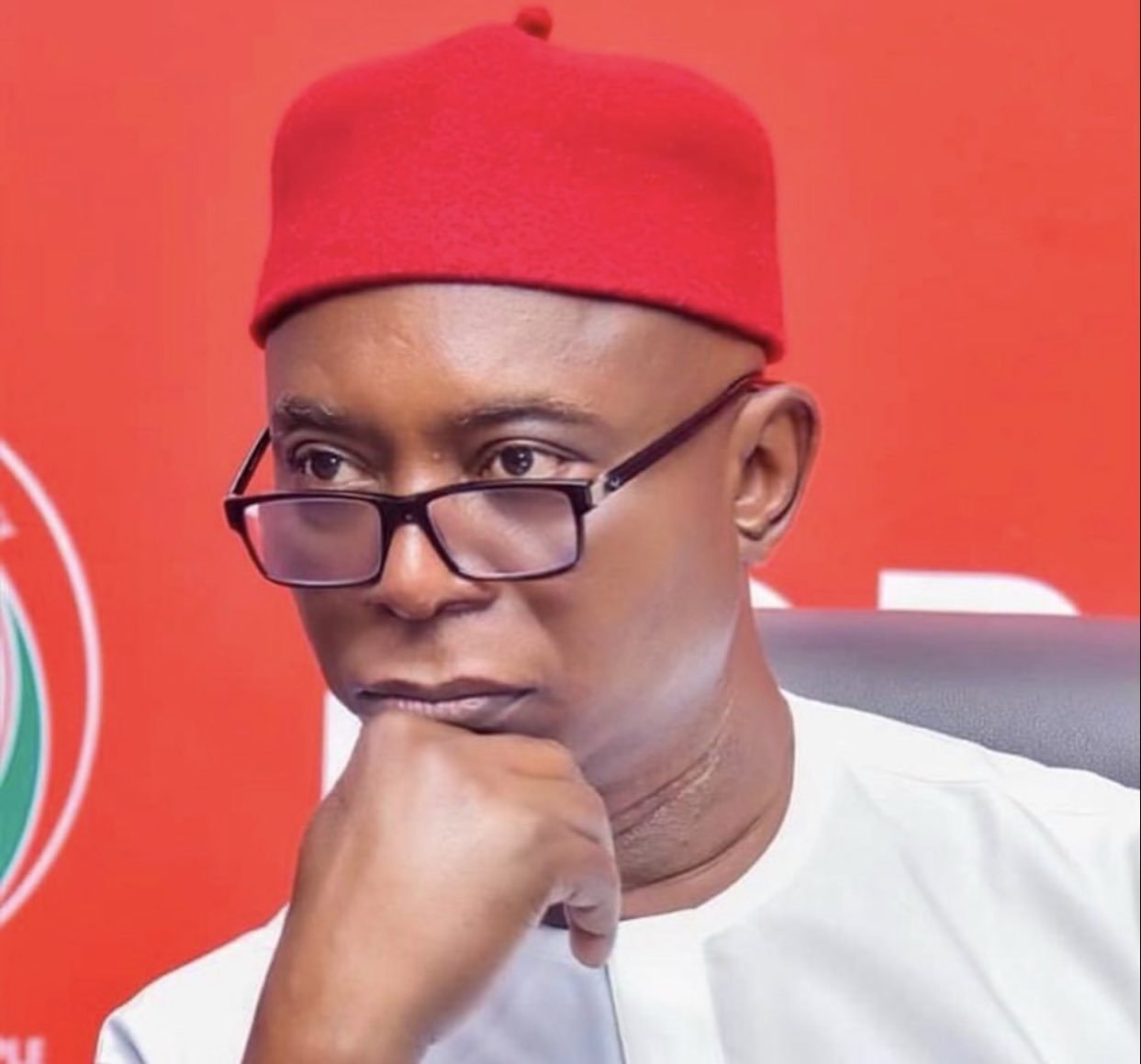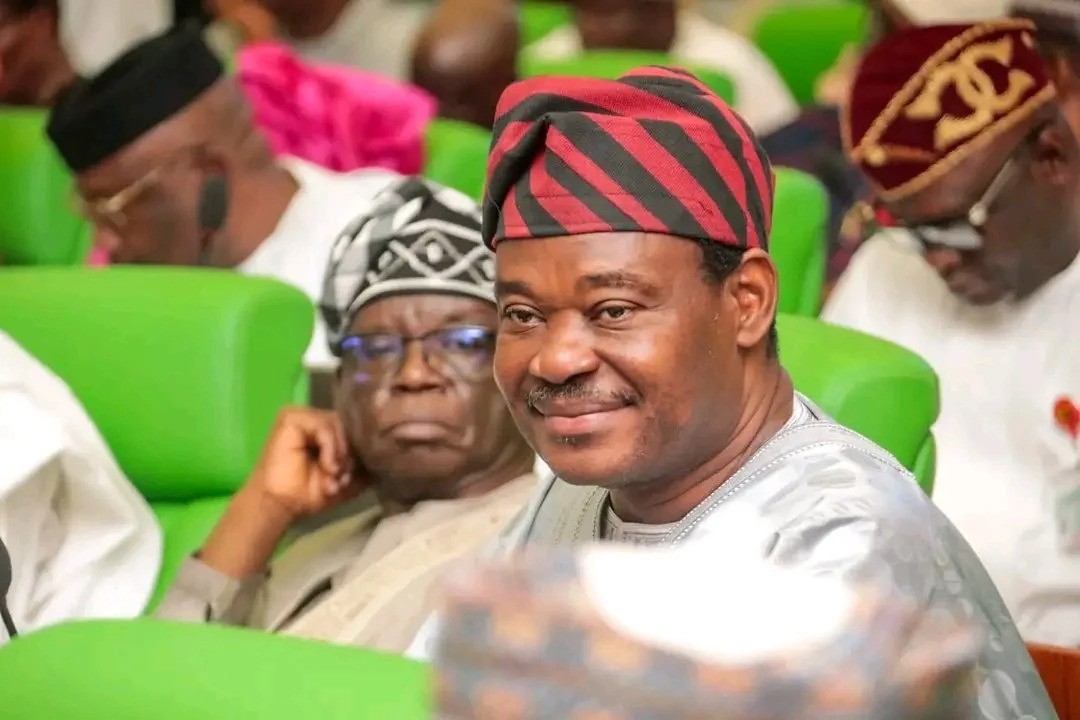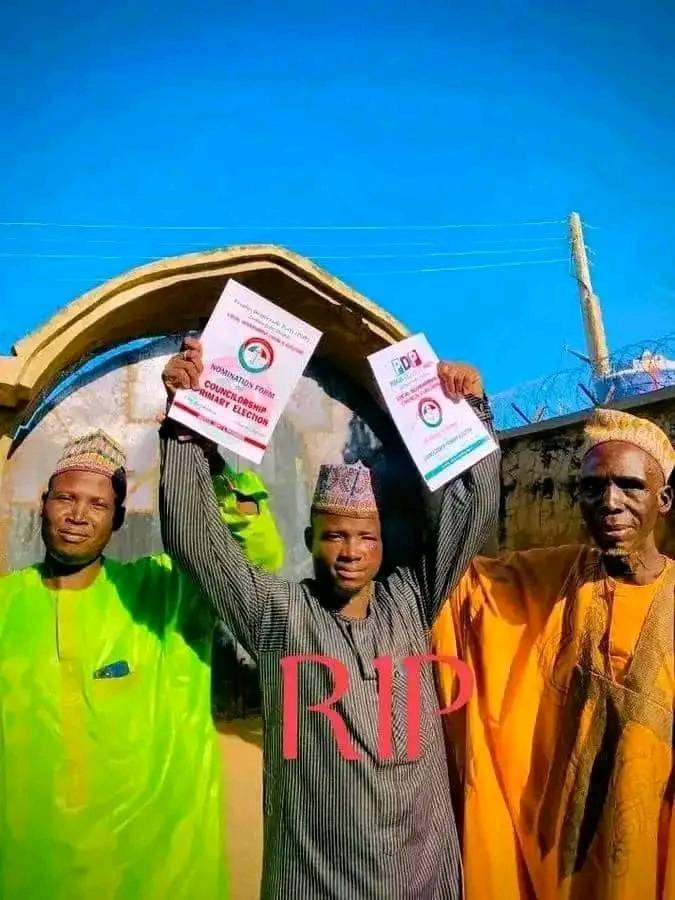Nigerian lawmaker representing the Delta North senatorial district, Senator Ned Nwoko, has defected from the Peoples Democratic Party (PDP) to the ruling All Progressives Congress (APC).
Senator Nwoko made the announcement on the floor of the Senate on Wednesday, 5th February, during plenary, confirming his defection from the PDP to the APC.
There had been growing speculation recently about the Nigerian politician’s departure from the major opposition parties in Nigeria.
In an exclusive interview with BBC Pidgin, Nwoko confirmed that he had indeed defected, stating his reasons for leaving the PDP after over twenty years of affiliation.
“Yes, I have left the PDP, I am now a card-carrying member of the APC and I formally resigned last week from the PDP,” he confirmed.
He added, “The PDP is in disarray, you can see the fights on television, you can see the crisis. We had hoped that the PDP would be a formidable opposition, but this is not what I have experienced in the last two years.”
Nwoko explained that this was his first experience in an opposition government, and it had not been favourable for his people in terms of the projects that should have been implemented in the state to improve their lives.
“The people who voted for me should benefit, and one of the reasons I decided to make this ‘sacrifice’ is because of the over fifty years of agitation by my people to create their own Anioma state,” he said.
He also remarked that the leadership of the PDP had failed at all levels and that the crisis within the party was no longer solvable. “The leadership of the PDP does not know what to do, opposition is not functioning in Nigeria, and it pains me deeply,” Nwoko said.
He explained that he had consulted with his people and initially believed that being part of a vibrant opposition party, one that had the people’s interests at heart, would help democracy grow in Nigeria. However, his experience with the PDP had been disappointing.
The PDP was one of Nigeria’s oldest and strongest political parties, dominating from 1999 to 2015 when former President Goodluck Jonathan lost to Muhammadu Buhari in the presidential election. Since 2015, the PDP has struggled to reclaim power at the federal level.
The internal struggles within the PDP and the ongoing efforts to resolve these issues have been constantly making headlines. Nwoko referred to these problems, saying, “The problems within the PDP are not solvable,” which is why he decided to defect.
He further noted, “The people who were supposed to help settle the crisis within the PDP, such as Atiku Abubakar and others, have also decided to leave the party to form a mega party. As they leave the PDP, the crisis will now be multiplied, as we will have two opposition parties that will not really be able to compete with the APC.”
Nwoko added that the only way to create a stronger opposition in Nigeria was for the new mega party that former PDP members are seeking to form to align with the second opposition party.
According to the Delta State politician, if both political parties stand alone, it will worsen the situation as they will not be able to effectively compete, which he hopes to avoid for the benefit of his people.
Another reason Nwoko cited for his defection is his desire to fight for the creation of Anioma State in the South-East geopolitical zone.
He said, “The creation of the state is a very difficult process, I understand, but the South-East, Ndi-Igbo, deserve one extra state, to make it six, just like the other zones, except the North-West which has seven.”
Most of his supporters are looking forward to the creation of the sixth state, referred to as the “Equity State,” so that the Igbos can feel a sense of justice and belonging.
“South-South has six states, North-Central has six, North-East has six, but the South-East has five, and the young people in the South-East are fighting for recognition and justice. They are fighting because they are marginalised,” Nwoko said.
He continued, “The injustice the South-East has faced since the war has lasted too long, and now is the time to get justice with the creation of Anioma State.”
The Nigerian lawmaker clarified that he has no ambition to become the governor of Delta State. “When the time comes, I, along with other stakeholders in the state, will sit down and discuss who will become the governor in 2027.”
He added, “There are young people who can be chosen, and I am confident that the APC will produce the next governor of Delta State, even though the state is currently one of the strongholds of the PDP.”
“We will sit down with the person, we will tell them what we need for Anioma, Delta North, Central, and the South, and we will sign an agreement. We will set a projected performance for four years. If you agree, we will sign it; if you don’t, we will look for someone else who will develop the people, the infrastructure, and empower the people.”
The former PDP lawmaker stressed that regardless of what happens in the future, he will remain with the APC as long as it benefits his people and that he will not just be a passive observer in the party.
“I will be a key player in the APC, not an observer or bystander. What needs to be done for my people, they must do it,” he added.
Regarding some of the policies introduced by President Bola Tinubu’s administration, Nwoko said that although they are tough on Nigerian citizens at the moment, everything will eventually be alright in the future.
“The reforms on taxes are people-friendly, they will help small businesses and those who don’t earn a significant amount of money.”
He also mentioned that he was happy that northern governors, who had previously opposed the tax reforms, have now understood the need for a unified tax system.
He added, “There is an opportunity for anyone who is unhappy with the laws to go to the tribunal to address it.”
Apart from the tax reforms and the subsidy removal on petrol, Nwoko said that there are other areas President Tinubu’s government will address, such as the use of foreign currencies in Nigeria and the ban on the importation of non-essential goods.
He stated, “These things are ruining the economy in Nigeria, and if the government stops them, the economy will grow.”
“When we stop measuring our naira against pounds and dollars and become self-sufficient with our local products, when our economy is strong, everyone will benefit. Whether you are rich or poor, it won’t matter because everyone will be happy.”
“But we must all be prepared for a period of planning. Once we do that, in the next five or ten years, we will know that we are trying to get Nigeria to a level. Let us tighten our belts, but it must be across the board, from local government chairmen to governors and the president,” he concluded.
BBC Pidgin.



